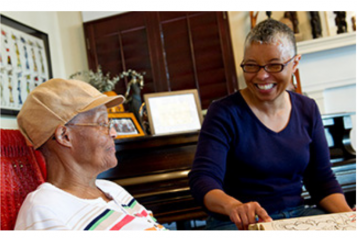What should happen when you're diagnosed with dementia

The essential information you should get
- Your type of dementia and how it will affect you.
- Any further tests, treatment, activities or therapies that might help you.
- Who will provide your care and how to contact them, including the professional who will coordinate your care.
- Support groups and charities that can help you.
- How dementia can affect your driving and what you need to do.
- How your employer should support you if you work (or are looking for work).
- Any research studies you could take part in.
This information should be explained to you and given to you in writing. You can also ask for it in a format you understand. If you don’t need this information straight away, you can ask for it later on.
Next steps checklist
To help you, Dementia UK has created a checklist to follow, which includes information on benefits and discussing plans and wishes with your family.
Planning your care
Now
After your diagnosis, your GP should direct you to services that can give you more information and support. You should also be given the name of a professional who will coordinate any care and support you might need.
The future
Thinking ahead can feel overwhelming, but planning care can help make sure people know your wishes for the future. When you're ready for this, you should be offered support and information to discuss your options.
Support for carers
Anyone with caring responsibilities for a person with dementia is entitled to a Carers' Assessment. Their local Authority will carry this out. The Assessment will look at the impact of caring for a person with dementia and what support is needed. Dementia UK have published guidance on Carer's Assessment on their website.
As a carer, it is essential to think about your health and wellbeing. It is a significant adjustment, so you should take a look at the options available to you. These can include:
- Training
- Support
- Advice
Local support services
There are a number of organiastions in Coventry that offer support. These include:


